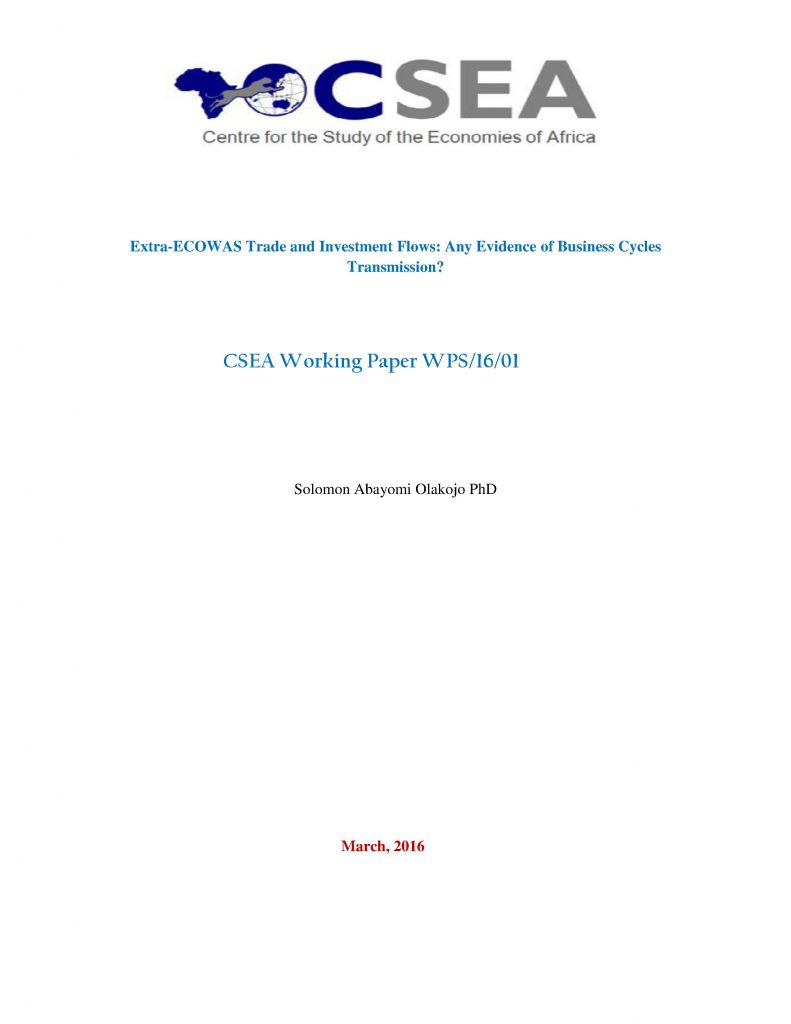Publications

July 26, 2016
Extra-ECOWAS Trade And Investment Flows: Any Evidence Of Business Cycles Transmission
This
study investigates the effects of merchandise trade and investment flows on the
transmission of business cycles between members of ECOWAS and the major trading
partnersbetween 1985 and 2014. Total trade and FDI significantly influence the
transmission of business cycles with elasticities of 1.1% and 0.7%,
respectively in the long run. There are little variations across the major
trading partners and other measures of trade flows. Intra-industry trade flows
with all partners, EU and USA influences the cross-country business cycles with
elasticities of 1.0%, 0.5% and 1.8%, respectively.
Related
Nigeria Economic Update (Issue 18)
Recent Data released by the Nigeria Bureau
of Statistics reveals an increase in total public debt stock between 2015 and
2016. Foreign and domestic debt stock stood at $11.4 billion and N14.0 trillion
respectively as at December 2016, from $10.7 billion and N10.5
trillionrecorded as at December 2015. Disaggregated
data shows that foreign debt sources comprised Multilateral ($8.0 billion),
Bilateral ($0.2 billion) and Exim bank of China ($3.2 billion); domestic
sources included government bonds, treasury bills and bonds. The federal
government and states accounted for 68.7% and 31.3% respectively of foreign
debt stock; 78.9% and 21.1% respectively of domestic debt stock. This maybe
particularly at the backdrop of government borrowings in 2016 to finance its
expenditure (mostly recurrent).
